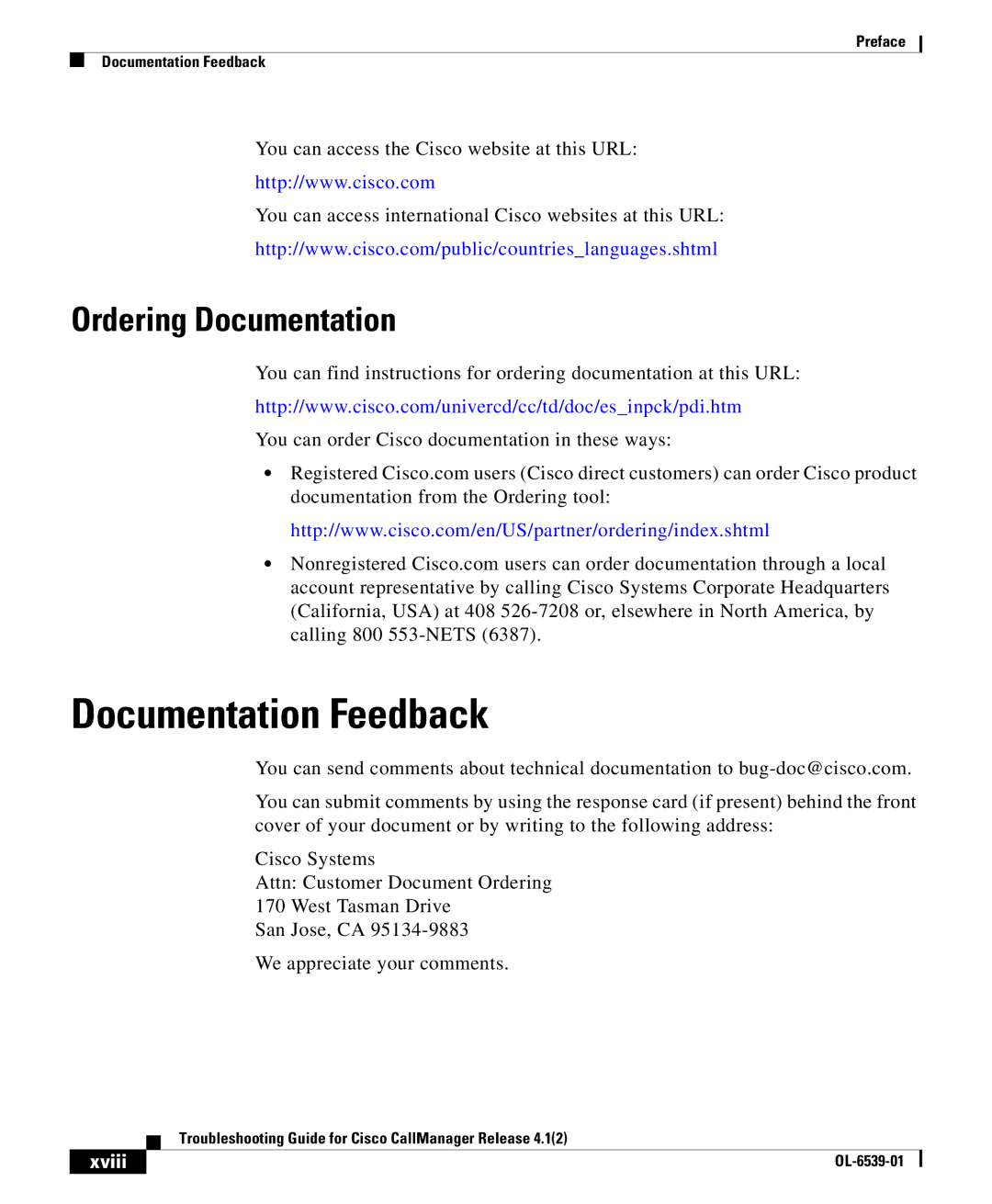OL-6539-01 specifications
Cisco Systems OL-6539-01, also known as the Cisco 4200 Series, is primarily designed to enhance networks through its advanced analytics, performance monitoring, and simplified management. This appliance is an integral part of Cisco's strategy to optimize data centers and enhance the efficiency of organizations’ networks.One of the main features of the OL-6539-01 is its support for Software-Defined Networking (SDN). This technology allows networks to be centrally managed and configured, enabling flexibility and scalability. With SDN, organizations can respond rapidly to changing business needs without the need for extensive hardware modifications.
Another key characteristic of the OL-6539-01 is its robust analytics capabilities. The system provides deep insights into network traffic, performance, and usage patterns. This enables IT teams to identify potential issues before they escalate and optimize application performance for end-users. The real-time analytics feature also supports proactive decision-making, which is essential for maintaining operational efficiency.
The OL-6539-01 is built to support high availability and disaster recovery. Its architecture ensures that organizations can maintain uptime even in the face of equipment failures or natural disasters. This reliability is crucial for businesses that rely heavily on uninterrupted access to their applications and services.
In terms of security, the OL-6539-01 incorporates advanced threat detection and mitigation features. With integrated security protocols, it safeguards sensitive data from unauthorized access and cyber-attacks. The regular updates and patches further enhance its security posture against emerging threats.
Performance is another area where the OL-6539-01 excels. It is optimized for handling large volumes of data with lower latency, making it suitable for environments that require high-speed data transfer. The system can efficiently manage multiple simultaneous connections without a drop in performance, which is vital for modern data-intensive applications.
Additionally, Cisco's commitment to seamless integration means that the OL-6539-01 works well with existing infrastructure and third-party solutions. This makes it an attractive option for businesses looking to modernize their networking capabilities without complete overhauls.
In summary, Cisco Systems OL-6539-01 embodies advanced networking features with an emphasis on SDN support, robust analytics, high availability, enhanced security measures, and exceptional performance, all while ensuring seamless integration. This makes it a formidable choice for organizations aiming to enhance their operational efficiency and network resilience.

